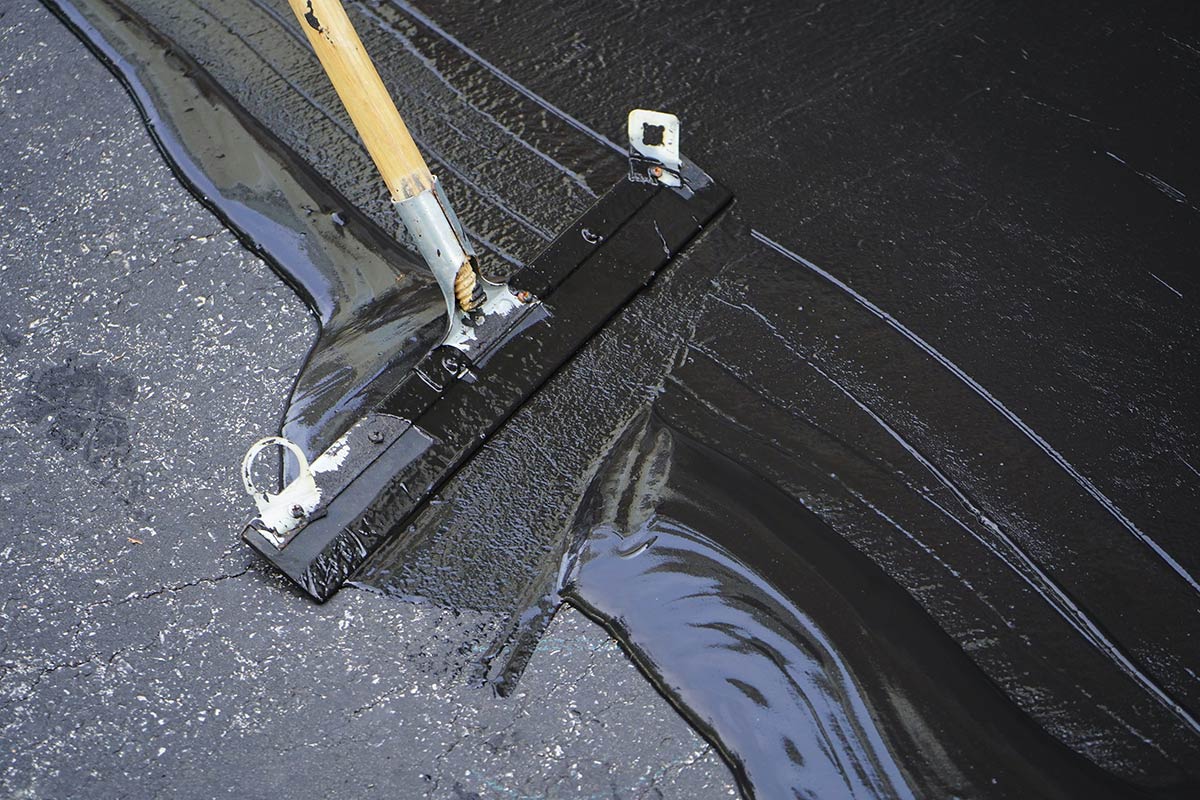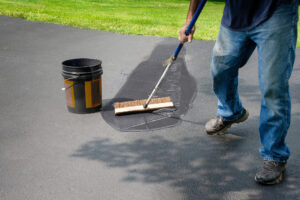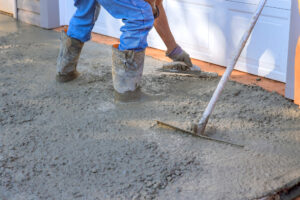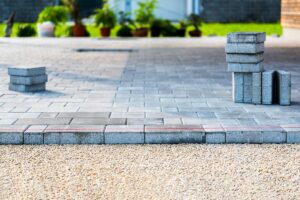
Sealing Concrete Driveway
There is a lot of discussion about whether it’s essential to use a sealer on concrete driveways and other surfaces made of concrete. Some people believe that applying a sealer every year is a must. This belief could be due to the marketing strategies of companies selling sealing products. However, even people who doubt the necessity of frequent sealing agree that occasional sealing can extend the lifespan of any concrete surface, such as a driveway, patio, pool deck, or sidewalk. If you have a stained or etched concrete driveway or patio, it is recommended to apply a good quality sealer every few years to extend its life and keep it looking good. This is especially important if you live in an area where winter road salt can damage the concrete. While concrete can perform well without a sealer, applying one can be an easy DIY project that can potentially increase the lifespan of your concrete slabs.
Types of Concrete Sealers
Make sure you are aware that there are various kinds of concrete sealers, such as acrylic resin-based sealer, epoxy or polyurethane sealer, and penetrating sealer. Understanding the differences between them can be helpful.
- Acrylic resin-based sealers: To get the best value for your money, consider using sealers that apply a layer of acrylic resin. To increase the longevity of the product, these sealers can be mixed with epoxy, polyurethane or silicone. Make sure to check product labels to determine the blend that is right for your needs. Acrylic resin comes in different types, and their quality varies. Lower-level styrene acrylic may turn yellow when exposed to direct sunlight, so, it is not recommended. A better choice is virgin or pure acrylic resin, which lasts longer and will not yellow.
- Epoxy or polyurethane sealers:Although these products are more expensive than acrylics, they may not necessarily be superior. They tend to create a thicker layer, which could be slippery when applied on a patio or walkway. Moreover, they may hinder the concrete from releasing moisture, leading to the formation of a white haze between the concrete and sealer layer.
- Penetrating sealers: Specialty resins, including silicones, siloxanes, and silanes, are used to create a chemical barrier against water, oil, and other common contaminants in products labeled as "penetrating" sealers. These types of sealers are suitable for protecting surfaces from stains in places like garages and driveways.
Professional concrete supply retailers offer the highest quality products, while hardware stores and home centers typically sell lower-cost, intermediate-level sealers that may not last as long as professional-grade sealers.
Gloss Levels
Concrete sealers come in various gloss or shine levels, similar to paints. You can select from options such as no-gloss, matte, satin, semi-gloss, gloss, and high-gloss, with gloss levels ranging from 1 to 100, with 100 being the highest. The gloss level you choose for your concrete driveway or patio depends on your preference and the location of the concrete. For higher gloss sealers, you may need to think about adding a non-slip coating for wet weather conditions, depending on the location.
- Solvent-based sealers: Gloss level of 80 to 100; high-gloss finish
- Water-based sealers: Gloss level of 50 to 80; matte or semi-gloss finish
- Penetrating sealers: Gloss rating of 0; no-gloss finish
It’s important to know that solvent-based sealers darken concrete more than water-based sealers. “Wet-look” sealers have more solids in the liquid and can give an unnatural appearance on stamped, colored, or textured concrete surfaces like patios and pool decks. However, wet-look sealers can also be used for staining and sealing a slab because some of them have coloring agents included.
How to Apply Driveway Sealer
To properly seal a concrete driveway, it is important to focus on preparation. This includes preparing both the concrete surface and yourself. It is crucial to ensure that the surface to be sealed is clean and dry. If needed, use soap or degreaser to thoroughly clean it. Additionally, any patching required should be completed prior to sealing. Ensuring that the surface is both clean and dry is essential for the sealer to properly adhere to the concrete.
Preparation
To avoid any harm to your skin or eyes, it is important to wear gloves, long sleeves and trousers, and eye protection when applying sealers. Prior to starting, carefully read the instructions on the label for any specific precautions, such as recommended weather and temperatures for sealing.
Equipment
To apply concrete sealers, you only need basic equipment like a roller, sprayer, or brush, depending on the type of sealer you use. Check the manufacturer’s instructions to know the recommended application method. Usually, spraying is best for solvent-based (oil-based) sealers, while water-based ones are better applied with a roller.
Coverage
For optimal results, make sure to achieve complete coverage when using either method. Generally, most products are designed to cover 250 to 300 square feet per gallon. Applying two or even three thin coats is recommended, with sufficient drying time between each coat to prevent puddling and ensure even coverage. Remember to overlap the areas as you apply the sealer in order to achieve complete coverage.
Drying
For best results, work on a small 25-square-foot section at a time instead of narrow strips. Allow about two hours for it to dry, but it might take longer if it’s humid, especially during summer when it could take over five hours. Ensure that the entire surface is dry to the touch before applying the next coat. If you have a new or extensive driveway, it’s best to hire a professional who will charge based on the driveway’s square footage.
Maintenance
To ensure that the sealer coat on your concrete area functions properly, it’s important to perform regular maintenance after it’s been sealed. This includes simply cleaning it every few months with soap and water. Additionally, if you notice any areas that have become thin, it’s a good idea to lightly reapply the sealer after washing.
Pressure Washing
Cleaning a sealed concrete driveway with a pressure washer is okay, but you should use the correct tip to avoid damaging the surface. Use a fan or rotary nozzle about 12 inches away from the surface. Test a small area first before proceeding to clean the entire surface. Hiring a professional to pressure wash your driveway or patio costs around $100 to $200 on average, depending on the size.
Resealing
The frequency at which a concrete driveway should be resealed depends on factors such as the type of product used, weather conditions and the amount of usage. The lifespan of the seal coat is also influenced by the quality of resins in the sealer. As per the recommendations of concrete trade organizations like Concrete Network, it is advisable to reseal the driveway every one to three years.





